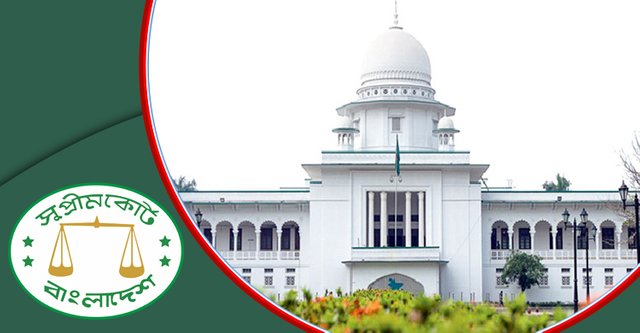The Dark Underbelly of Hasina's Judiciary in Bangladesh: A Mafia of Corruption

While honest judges like Hossain were driven out, others like Bikash Kumar Saha, known for selling verdicts, granting bails for money, and embezzling funds through fake vouchers, thrived under the corrupt system. Saha, who remains a proud Joint Secretary in the Law and Justice Division, managed to build a network of corruption that spread through the judiciary like a cancer. His ability to manipulate the system became so entrenched that even the law minister could not act without his approval. This judicial mafia, led by Saha and his allies, turned the courts into a marketplace where justice was bought and sold.
The Ministry of Law, under Saha's influence, became a den of corruption, especially in projects like the "Chief Judicial Magistrate Court Building Construction Project" across 64 districts. Originally budgeted at BDT 22.6034 billion, the project became a goldmine for embezzlement. Anisul Haque and Saha pocketed billions, while judges and officials who dared to speak out were sidelined.
This corruption was not limited to just a few bad actors. Still, it was institutionalised, with key positions within the judiciary and the Law Ministry filled by those loyal to the Awami League. These officials turned the judicial process into a puppet show controlled by the fascist regime of Sheikh Hasina. Judges began to see their role not as dispensers of justice but as tools of the ruling party, leading to widespread fear and mistrust within the legal community.
As the tide turned with the arrival of Dr. Muhammad Yunus's interim government, there was hope that the judiciary could be cleansed. However, the deep roots of corruption planted by the Hasina government proved challenging to uproot. A list of 170 judicial officers known for allegiance to the Awami League has been circulating, demanding immediate removal. This list, compiled by lawyers and activists, highlights the urgent need to purge the judiciary of these corrupt elements to restore any semblance of justice in Bangladesh.
The Assault on the Bangladesh Army: Hasina's Sinister Agenda
While the judiciary was being corrupted, the Bangladesh Army was facing a different kind of assault. Tareque Rahman, the acting chairman of the BNP, has long warned about Sheikh Hasina's intentions to dismantle the military. The Awami League's attempts to infiltrate and weaken the army have been ongoing for years, driven by the fear that the military remains one of the few institutions not entirely under their control.
The 2018 BDR mutiny was a tragic turning point, where a violent uprising within the paramilitary border guards led to the massacre of 57 army officers. The mutiny, believed to have been orchestrated by elements within the Awami League, was a calculated move to eliminate senior officers and weaken the military's command structure. Since then, Hasina has systematically eroded the army's autonomy, promoting loyalists and using the military to suppress political dissent.
General Moeen Uddin Ahmed, who orchestrated the Bangladesh Army's humiliating surrender at the UN Peacekeeping Operation headquarters in 2007, was rewarded with an extension and immunity for his loyalty to the Awami regime. His successor, General Shafiuddin Ahmed, further politicised the army, using it as a tool to enforce the Awami League's authoritarian rule. The army's intelligence wing, the Directorate General of Forces Intelligence (DGFI), was repurposed to monitor and intimidate officers who showed any signs of disloyalty.
The situation reached a new low when the army was deployed to crush protests following the 2018 parliamentary elections, which were widely criticised for being rigged. The military's involvement in suppressing political dissent further damaged its reputation, as it became clear that the army was no longer a neutral force but a weapon in the Awami League's arsenal.
Despite these challenges, there is growing unrest within the military ranks. Many officers are increasingly disillusioned with the politicisation of the army and the erosion of its professional integrity. Tareque Rahman has called on these patriotic officers to resist Hasina's efforts to destroy the military and to uphold their constitutional duty to protect the nation.
The future of Bangladesh's army hangs in the balance. As political instability and external pressures mount, the military's role in the country's future remains uncertain. However, one thing is clear: the Bangladesh Army, once a proud and independent institution, is at risk of becoming another casualty of Sheikh Hasina's authoritarian rule. The time for resistance is now before it is too late to save one of the nation's last remaining pillars of sovereignty.
Thank you, friend!


I'm @steem.history, who is steem witness.
Thank you for witnessvoting for me.
please click it!
(Go to https://steemit.com/~witnesses and type fbslo at the bottom of the page)
The weight is reduced because of the lack of Voting Power. If you vote for me as a witness, you can get my little vote.
Upvoted! Thank you for supporting witness @jswit.